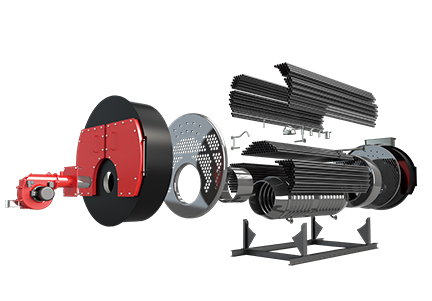Steam Boiler Solutions for Efficient Operation in the EPS Manufacturing Industry
Steam Boilers in the EPS Industry Essential Services and Benefits
Steam boilers play a crucial role in various industrial applications, including the Expanded Polystyrene (EPS) industry. The EPS industry, known for producing lightweight and insulating materials widely used in packaging, construction, and engineering, relies heavily on steam for its manufacturing processes. This article explores the significance of steam boilers in the EPS sector, their operational advantages, and the critical services they provide.
Understanding the EPS Industry
Expanded Polystyrene is a thermoplastic foam commonly used for its excellent cushioning and insulation properties. The production of EPS involves the expansion of polystyrene beads, which requires controlled heating and processing. This is where steam boilers become indispensable, providing the necessary heat for the expansion process and ensuring the quality of the final product.
The Role of Steam Boilers
Steam boilers in the EPS industry mainly serve to produce high-pressure steam, which is vital for several processes, including
1. Heating The steam generated by the boilers heats the polystyrene beads, causing them to expand and form the desired foam structure. This is a critical step, as uneven heating can lead to inconsistencies in the final product. 2. Processing Steam is also used during the molding and shaping of EPS products. By applying steam in specific molds, manufacturers can achieve precise shapes and density, catering to the diverse needs of the market.
3. Cleaning and Maintenance Steam plays a key role in cleaning equipment and maintaining the hygiene standards necessary in manufacturing environments. The high-temperature steam effectively eliminates residues and contaminants, ensuring product safety.
Advantages of Using Steam Boilers
steam boiler for eps industry service

The incorporation of steam boilers in the EPS industry presents several benefits
- Energy Efficiency Modern steam boilers are designed to maximize thermal efficiency. They utilize advanced technologies to reduce energy consumption while maintaining optimal performance. This translates to lower operational costs and a reduced environmental footprint.
- Consistent Production Quality The controlled supply of steam ensures uniform heating across all components, which is essential for maintaining quality and consistency in the final products. This reliability helps manufacturers meet industry standards and customer expectations.
- Scalability Steam boilers can be scaled to match the production needs of the EPS industry. Whether a facility is operating on a small or large scale, steam systems can be designed to accommodate varying demands, making them versatile for different production volumes.
Service and Maintenance
To ensure that steam boilers operate efficiently over their lifespan, proper servicing and maintenance are crucial. Regular inspections, prompt repairs, and routine maintenance help prevent breakdowns and extend the life of the equipment. Additionally, trained technicians should be employed to handle boiler operations safely and efficiently, keeping production running smoothly.
Conclusion
In conclusion, steam boilers are essential in the EPS industry, providing the necessary heat for production processes and ensuring high-quality outputs. Their energy efficiency, ability to maintain consistent production quality, and scalability make them a valuable asset for manufacturers. As the EPS industry continues to grow, the importance of reliable steam boiler service and maintenance becomes ever more critical, ultimately contributing to the industry's success and sustainability. By investing in state-of-the-art steam boiler systems and committing to proper maintenance, EPS manufacturers can secure their position in the competitive market while promoting environmentally responsible practices.
-
Top Electric Steam Boiler Manufacturers - High Efficiency SolutionsNewsJul.30,2025
-
Top Electric Steam Boiler Manufacturers – Efficient Industrial SolutionsNewsJul.29,2025
-
Top Electric Steam Boiler Manufacturers | Reliable Industrial SolutionsNewsJul.29,2025
-
OEM Steam Boiler Solutions for Custom Needs | High Efficiency & VersatilityNewsJul.29,2025
-
High-Efficiency Thermal Oil Boiler for Industrial Heating SolutionsNewsJul.29,2025
-
Top Electric Steam Boiler Manufacturers for Industrial EfficiencyNewsJul.28,2025

